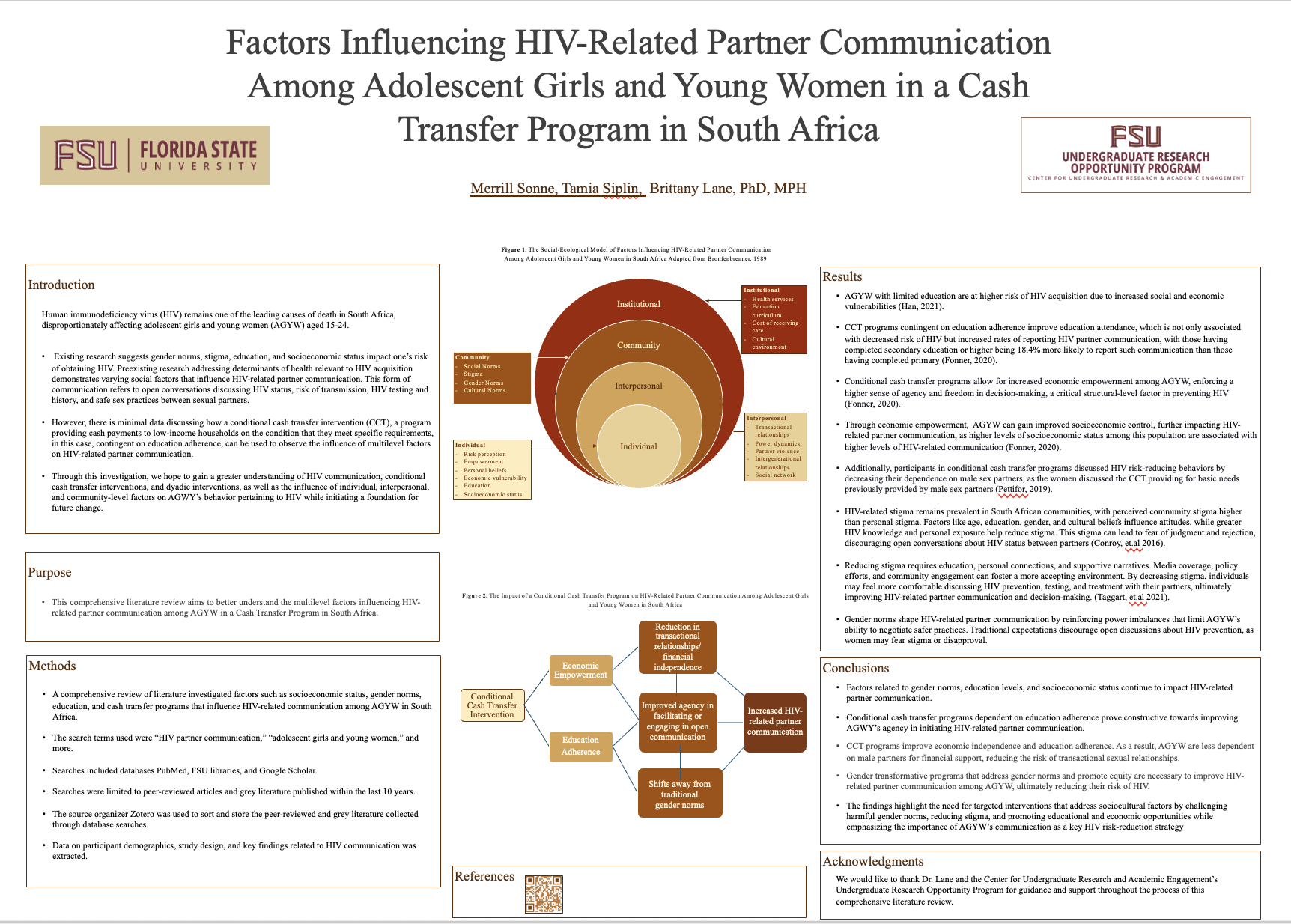Research Symposium
25th annual Undergraduate Research Symposium, April 1, 2025
Merrill Sonne Poster Session 3: 1:45 pm - 2:45 pm/ Poster #239

BIO
Merrill is a second-year student from Naples, Florida, pursuing a dual degree in Public Health and International Affairs. She is passionate about global health and health equity. Following graduation, Merrill plans to earn a Master of Public Health degree.
Factors Influencing HIV-Related Partner Communication Among Adolescent Girls and Young Women in a Cash Transfer Program in South Africa
Authors: Merrill Sonne, Dr. Brittany LaneStudent Major: Public Health and International Affairs
Mentor: Dr. Brittany Lane
Mentor's Department: Center of Population Studies for Health Equity Mentor's College: College of Nursing Co-Presenters: Tamia Siplin
Abstract
This research examines the sociocultural factors that impact HIV-related partner communication among adolescent girls and young women (AGYW) aged 15-24 in South Africa while focusing on cash transfer programs and education in improving HIV-related partner communication. Specifically, this study addresses how these determinants influence discussion regarding HIV testing, prevention, and treatment among different partner types (intergenerational, transactional, and committed relationships). Understanding the roles of these factors is paramount to identifying barriers and facilitators of open communication between sexual partners. Assessments of peer-reviewed and grey literature published or reported within the past ten years were conducted using key search terms such as “HIV partner communication,” “AGYW,” and others. PUBMED, Google Scholar and FSU libraries were used to analyze studies examining HIV communication, conditional cash transfer interventions (CCT), dyadic interventions, and the influence of individual, interpersonal, and community-level factors on HIV-related AGYW behavior. The findings suggest that lower education level, parental status, the presence of rigid gender norms (e.g., male dominance in decision-making), and HIV-related stigma play a significant role in AGYW’s communication about HIV with their partners.
Cash transfer programs appear to facilitate increased communication by improving AGYW’s education attendance and economic independence. These findings highlight the need for targeted interventions that address sociocultural factors by challenging harmful gender norms, reducing stigma, and promoting educational and economic opportunities while emphasizing the importance of AGYW’s communication as a key HIV risk-reduction strategy. Furthermore, these findings suggest the need to promote education and economic opportunities among AGYW to improve HIV-related partner communication.
Keywords: HIV-related partner communication, South Africa


